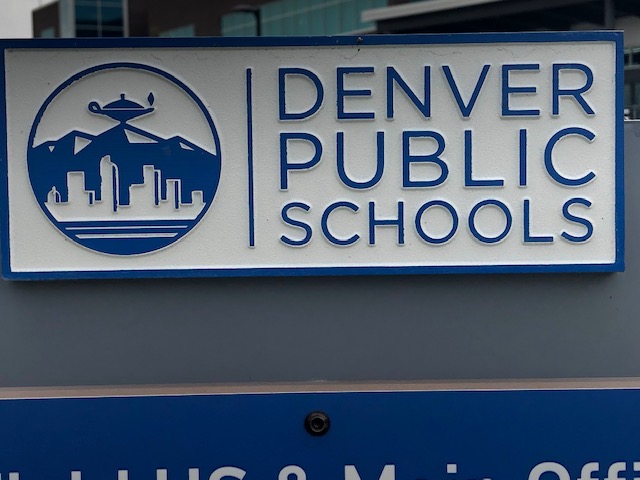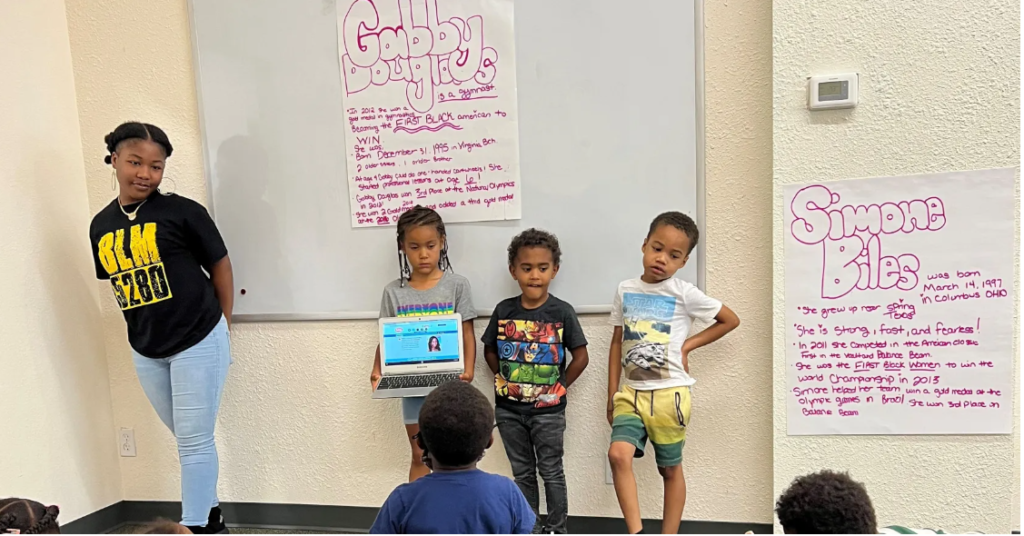The school year in Denver that ended in June featured disturbing incidents of violence and student deaths. Botched school closures, personality conflicts and other disruptions plagued the Board of Education while student achievement received scant attention. A group of parents have gained thousands of signatures on a petition demanding that the board resign.
The leadership of Denver Public Schools Superintendent Alex Marrero was called into serious question by parents and community leaders who were dissatisfied with his response to various issues. And to top it off, during the summer break, Marrero fired the popular and successful principal of McAuliffe International, Kurt Dennis, after he spoke out against district policy requiring school administrators to search violent students daily for weapons. A parents group has gathered more than 6,000 signatures asking for Dennis to be re-instated as McAuliffe principal.
Many of those negative issues loom on the horizon of the 2023-24 school year that formally starts Aug. 21 when most students and teachers return to their classrooms. Based on our coverage, observations and discussions with knowledgeable folks, Central Park Education News offers a preview of the Central Park and DPS landscape in 2023-24.
School board election
The election on Nov. 7 seems destined to generate much more interest than typical school board campaigns.
Three DPS board seats are on the Nov. 7 ballot: one at-large and two district seats, one in northwest Denver and the other in southeast.
The at-large seat is open as incumbent Auon’tai Anderson is not seeking re-election. It is the only seat that residents of northeast Denver will vote for.
So far, four people have announced their candidacy for the at-large seat: Paul Ballenger, a security expert and former Marine; Ulcca Hansen, a former classroom teacher and PhD education researcher; Kwame Spearman, former CEO of the Tattered Cover bookstore chain; and John Youngquist, former principal of East High School and longtime school district administrator.
Running in southeast is incumbent Scott Baldermann and incumbent Charmaine Lindsay is running in northwest.
The most recent board election in 2021 created a group that is fractionalized and seldom gets along with one another. Personality conflicts that have boiled over in public have become an embarrassment. Board members regularly speak out on their own, ignoring the well-accepted practice of a board chair speaking for the group and for individual members to publicly support initiatives that they may not have agreed with in a board vote.
Most recently the board has inserted itself into the contentious termination of Kurt Dennis as principal of McAuliffe International and the use of a de-escalation room for disruptive students. The public rush to judgment by board members against a former employee is nearly unprecedented and has caused severe backlash from parents, students, teachers and civic leaders.
In Nov. 2021 three new members and one incumbent who were backed by the teachers union and who oppose reforms instituted by previous boards, were elected. The new members were: Scott Esserman, at-large; Michelle Quattlebaum, northeast; and Xochitl “Sochi” Gaytan; southwest; Carrie Olson, who represents central Denver, was re-elected.
The new majority does not support reforms such as adding charter and innovation schools; allowing more autonomy and decision-making at the school level; evaluating teachers partially by standardized test results; and school ratings primarily based on standardized test results and ensuring public access to the information.
Issues likely to dominant the campaign:
- Improved school security, including use of Denver police officers in high schools;
- Ending divisive and antagonistic relationships among board members to focus on student achievement;
- Performance evaluation of the superintendent;
- Declining enrollment and need to close some schools and the resulting reduction of revenue;
- Better recruitment of teachers of color;
- Stagnant or decreasing student achievement, especially the widening gap in achievement between white and Black and Hispanic students.
To learn more about what the Denver board does click here.
Supt. Alex Marrero
In June 2021, on a vote of 6-1, the board hired Marrero to replace Susana Cordova who was forced out by a majority that does not support previous reforms she was associated with that relate to charters, school autonomy, testing and school ratings. The Nov. 2021 election brought on the three new members and an incumbent (Esserman, Quattlebaum, Gaytan and Olson) who were backed by the teachers union.
Cordova was named Colorado Commissioner of Education in June.
The dissenting vote against hiring Marrero was from former DPS board member and former Colorado lieutenant governor, Barbara O’Brien, who said in an interview with Colorado Public Radio at the time that the hiring process “didn’t produce the kind of stellar applicants . . . that I think we deserve to get.
“I think we should have someone with much more experience,” O’Brien said. “To add the culture change that he will navigate coupled with the relative inexperience in running a district, I worry that Denver students and families will experience a superintendent with a huge learning curve.” Click here for Colorado Public Radio story on Marrero’s hiring.
Indeed, Marrero, who was 38 when hired, had never been a superintendent. Previously, he was a guidance counselor, an assistant principal and principal, in New York City, and an assistant superintendent and interim superintendent in New Rochelle, NY for nine months before joining DPS; New Rochelle is in Westchester County, northeast of New York City. Its district has 10,000 students in 10 schools. DPS has nearly 90,000 students in more than 200 schools.
His tenure has been rocky. He spent much of his first year visiting schools, learning about the district. By spring 2021 he convinced the board, at the urging of the teachers union, to eliminate numerous powers innovation schools enjoyed to run more autonomously from the district. He got the board to revoke one of the city’s three innovation zones and has weakened the other two, including the Northeast Denver Innovation Zone that includes McAuliffe, Swigert International and McAuliffe Manual middle school.
Marrero has shown that he does not appreciate dissent.
He banned an activist in far northeast Denver, Brandon Pryor, from nearly any school or DPS activity because of accusations Pryor bullied district officials. Pryor claimed his free speech rights had been violated and in early spring 2023 a federal judge agreed, ruling twice in Pryor’s favor. DPS is appealing.
During the innovation school dispute, he ordered all principals not to say anything in public that disagreed with district policy.
He has been criticized for his handling of recent incidents of school violence, including a student shooting of two East High administrators in March as they were searching the student for weapons. Another East student, Luis Garcia, was shot in February while sitting in his car near the school. He died two weeks later.
Following the shooting of East officials, Marrero pledged to bring back Denver police officers, known at School Resource Officers, or SROs, to high schools though it was against board policy. The board went into a closed executive session where it formed a new SRO policy. The district then lost a court challenge brought by media outlets that successfully claimed the board violated state open meetings law. Audio recording of the session were released the end of July.
During that executive session Marrero revealed his concern about damage to his professional standing caused by the SRO debate.
“People are calling for my resignation because I am pro-cop all of a sudden,” Marrero told the board. “I have a career beyond this. Fifty percent of the districts won’t see me from here on out.”
Marrero also said he wanted the city’s help addressing school violence. But in April he did not even attend a meeting on the issue which greatly angered city council members.
Most recently Marrero’s firing of McAuliff’s principal ignited a petition campaign against his decision that has gained more than 6,000 signatures. Denver’s new mayor, Mike Johnston, is a friend and former colleague of Dennis’. Johnston texted Marrero soon after taking office in July that firing Dennis was “gonna be a terrible outcome for you and your team” which would indicate the superintendent is off to a poor start with the new mayor.
In a case like Dennis’ and just before joining DPS, Marrero was one of several top administrators in New Rochelle who were accused in a federal lawsuit of silencing and retaliating against the district’s medical director as she tried to keep the school community informed and safe during the COVID-19 pandemic.
For its part, the DPS board gave Marrero a contract extension from two to four years after he had only five months on the job. The board has not done its own evaluation of Marrero’s performance, choosing instead to accept his self-evaluation. In May the board gave him a 10% raise to $305,000 annually. And unlike his predecessors, Marrero has also refused to release the evaluation of him done by his staff.
School safety
The safety of students and school staffs will get a lot of attention this year.
The East High shootings prompted the board to reinstate SROs at 13 large high schools. The board, which has been skeptical of the effectiveness of SROs, has reserved the right to rescind that order.
The superintendent developed a safety plan that focuses on preventing student violence, mental, social and emotional health, physical and mental well-being and behavioral health. Click here to view the plan.
The online news outlet, Denverite described the financial aspects of Marrero’s plan:
“In his proposed 2023-2024 budget, Marrero requested an additional $9 million in funding to implement the plan.
Of the $9 million, Marrero asked for $4 million in recurring general funds for long term safety costs and $5 million for capital expenditures on things like potential weapon detection systems and cameras.
The requested funds would potentially cover things like additional mental health screenings and support for students and staff, an online dashboard for various safety plans, safety upgrades to buildings and expanded hybrid online spots for students. DPS will also likely shoulder some of the SRO costs. Previously, DPS and DPD split SRO funding, costing the district around $750,000.”
Student achievement
Since the end of the pandemic, achievement has gained some stability but has gone down for low income and minority students.
The DPS board and leadership have devoted very little time to this issue, which is their primary responsibility. Look for board candidates to highlight that during the fall campaigns.
Results from the 2023 Colorado Measures of Academic Success tests – CMAS — for will be released Thurs. (8/17). CPEdNews.org will highlight Central Park and DPS results in our Aug. 21 weekly news roundup.
In 2022 DPS scores were up slightly from 2021 with 39.4% that met or exceeded expectations in literacy and 28.8% at or above expectations in math. The gaps between achievement of white students and Black and Hispanic students remained wide with 72% of white students meeting expectations while only 26% of Black students and 24% of Hispanic students managed to cross that threshold.
Ninth and tenth graders take the PSAT, and 11th graders take the SAT as their annual test. Overall, in DPS in 2022, 52% and 54% of DPS ninth and tenth graders, respectively, met expectations in literacy, and 33% and 30% met them in math. On the SAT, 46% of 11th graders met expectations in literacy and 29% did in math.
Northfield High School surpassed the district averages. In literacy, 69% and 82% of ninth and tenth graders, respectively, met expectations in literacy and math on the PSAT while on the SAT 65% and 46% of 11th graders met expectations in literacy and math, respectively.
Declining enrollment and school closures
Last year, three schools were closed because of low enrollment, including Denver Discovery middle school in Central Park. Another dozen face the same fate this coming year. Revenue follows enrolment, making smaller schools much more expensive to run.
In fall 2022, board members rejected closure recommendations from Marrero citing poor engagement with the school communities about their likely fates. His administration is expected to recommend more closures in fall 2023 after more involvement of local communities.
In March CPENews wrote about the troubling trends in DPS enrollment (excerpts below).
“District enrollment has been declining for several years. Since 2014, K-5 schools lost 6,485 students. Middle school enrollment has gone down by 1,612 since 2019. The district expects to lose 3,000 more students over the next five years.
Since 2019, overall DPS enrollment has dropped from 94,000 to 89,213 this year (2022-23). The unsettling enrollment also has caused a potential $9 million budget shortfall next year.
The Denver Public Schools board voted (March 9) to close Central Park’s Denver Discovery (middle) School in June. The board also agreed to close two elementary schools, Fairview and Mathematics and Science Leadership Academy. All three have fewer than 120 students. Schools under 215 students are generally considered financially unstainable.
DDS had 93 students this year and was projected to have 62 students in 2023-24. Denver Public Schools spent $31,517 for each of DDS’ students – $21,000 above the district per pupil average, as reported by CPEDNews.org last week. This year, 86% of DDS’ students qualify for free or reduced lunch – a common measurement of low income students — and 90% are minority, according to the DPS 2022-23 School Choice and Enrollment Snapshot.
According to a district report, subsidies next year for the three “critically low-enrolled” schools:
DDS: $1,056,611
MSLA: $693,282
Fairview: $680,139
The same report noted the projected enrollment and subsidy next year (2023-24) for the other dozen schools:
- International Academy of Denver at Harrington, 131 students, $519,708 subsidy.
- Columbian Elementary, 141 students, $537,838 subsidy.
- Schmitt Elementary, 142 students, $531,651 subsidy.
- Hallett Academy, 171 students, $1,049,172 subsidy.
- Palmer Elementary, 175 students, $352,626 subsidy.
- Kaiser Elementary, 175 students, $360,053 subsidy.
- Whittier K-8 School, 186 students, $300,932 subsidy.
- Colfax Elementary, 192 students, $247,447 subsidy.
- Eagleton Elementary, 194 students, $211,134 subsidy.
- Ashley Elementary, 198 students, $105,179 subsidy.
- Beach Court Elementary, 201 students, need $86,618 subsidy.
- Cole Arts and Sciences Academy, 209 students, $37,122 subsidy.




